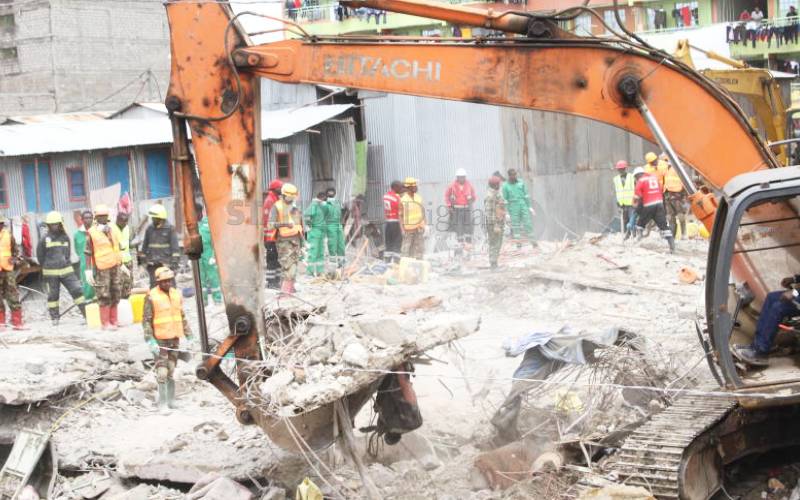×
The Standard e-Paper
Stay Informed, Even Offline

A disaster rescue team in an operation in Tassia following the collapse of a six-storey building. [David Njaaga,Standard]
Two tragedies hit the country last Friday. First, a six-storey building in Tassia, Nairobi collapsed. So far, five people have been reported dead, many are injured and some are still stuck in the rubble.